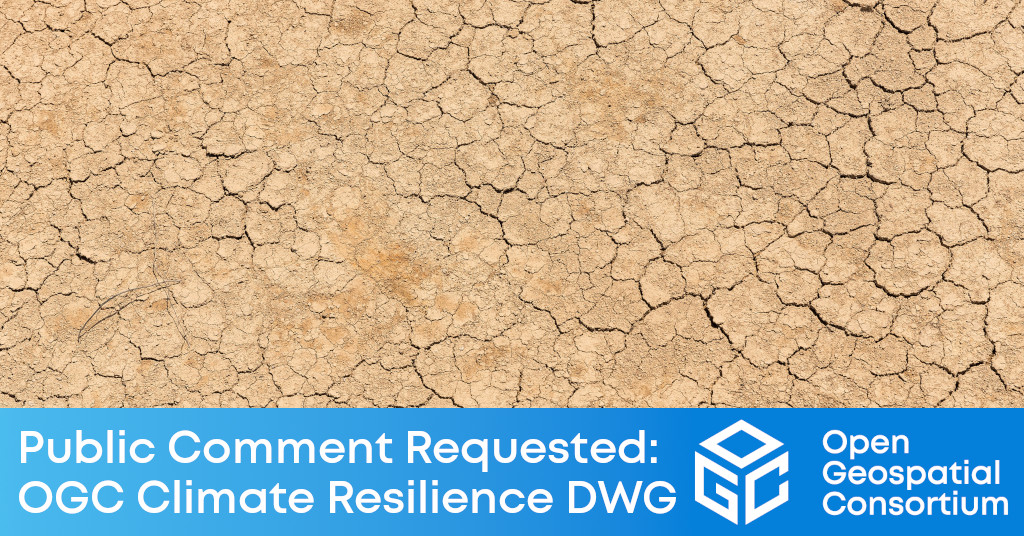The Climate Resilience DWG will support the development of a reliable, interoperable foundation for science services to access, fuse, and analyze data for use in climate change actions.

The Open Geospatial Consortium (OGC) seeks public comment on the draft charter of the proposed OGC Climate Resilience Domain Working Group (DWG). Comments are due by May 11, 2022.
The OGC Climate Resilience DWG will provide an open forum for the discussion and presentation of interoperability requirements, use cases, pilots, and implementations of OGC Standards in the context of cross-sector climate actions. The goal of the DWG is to support the development of a reliable, interoperable foundation for science services that are used in climate change actions.
Producing and providing reliable climate information requires huge volumes of data to be assembled and processed from different scientific ecosystems – requiring standards and collaboration to support evidence-based decision making. Since the looming challenge of achieving climate resilience is global in nature, spatial aspects must therefore be addressed on a global scale.
OGC's mission of enabling FAIR (Findable, Accessible, Interoperable, Reusable) data plays a special role in designing Climate Resilience Information Systems, as the entire climate information ecosystem around data will only reach its full potential if participants adhere to the FAIR principles, not only for the data contained within the systems, but throughout the entire climate resilience information systems themselves. This requires agreements on metadata aspects for discovery, application programming interfaces (APIs), and resource models for interaction with the climate resilience information system.
With this requirement in mind, targeted activities of the Climate Resilience DWG will involve defining, collecting, analyzing, and communicating data streams, and building value from raw data through to effective information visualization and interpretation.
The OGC Climate Resilience DWG charter defines the DWG's scope as supporting any action that accelerates our collective readiness to access, fuse, and analyze data from the climate change modeling community with earth observation or any other type of data relevant to climate action (such as social science data) in order to contribute to the global push for achieving climate resilience.
The OGC Climate Resilience DWG should work in line with the United Nations climate policy frames.
The Draft Climate Resilience Domain Working Group Charter is available for review and comment on the OGC Portal. Comments are due by May 11, 2022, and should be submitted via the method outlined on the OGC Climate Resilience Domain Working Group Draft Charter's public comment request page.
About OGC
The Open Geospatial Consortium (OGC) is a collective problem-solving community of experts from more than 500 businesses, government agencies, research organizations, and universities driven to make geospatial (location) information and services FAIR – Findable, Accessible, Interoperable, and Reusable.
The global OGC Community engages in a mix of activities related to location-based technologies: developing consensus-based open standards and best-practice; collaborating on agile innovation initiatives; engaging in community meetings, events, and workshops; and more.
OGC's unique standards development process moves at the pace of innovation, with constant input from technology forecasting, practical prototyping, real-world testing, and community engagement.
OGC bridges disparate sectors, domains, and technology trends, and encourages the cross-pollination of ideas between different communities of practice to improve decision-making at all levels. OGC is committed to creating an inclusive and sustainable future.
Visit ogc.org for more info on our work.
“






